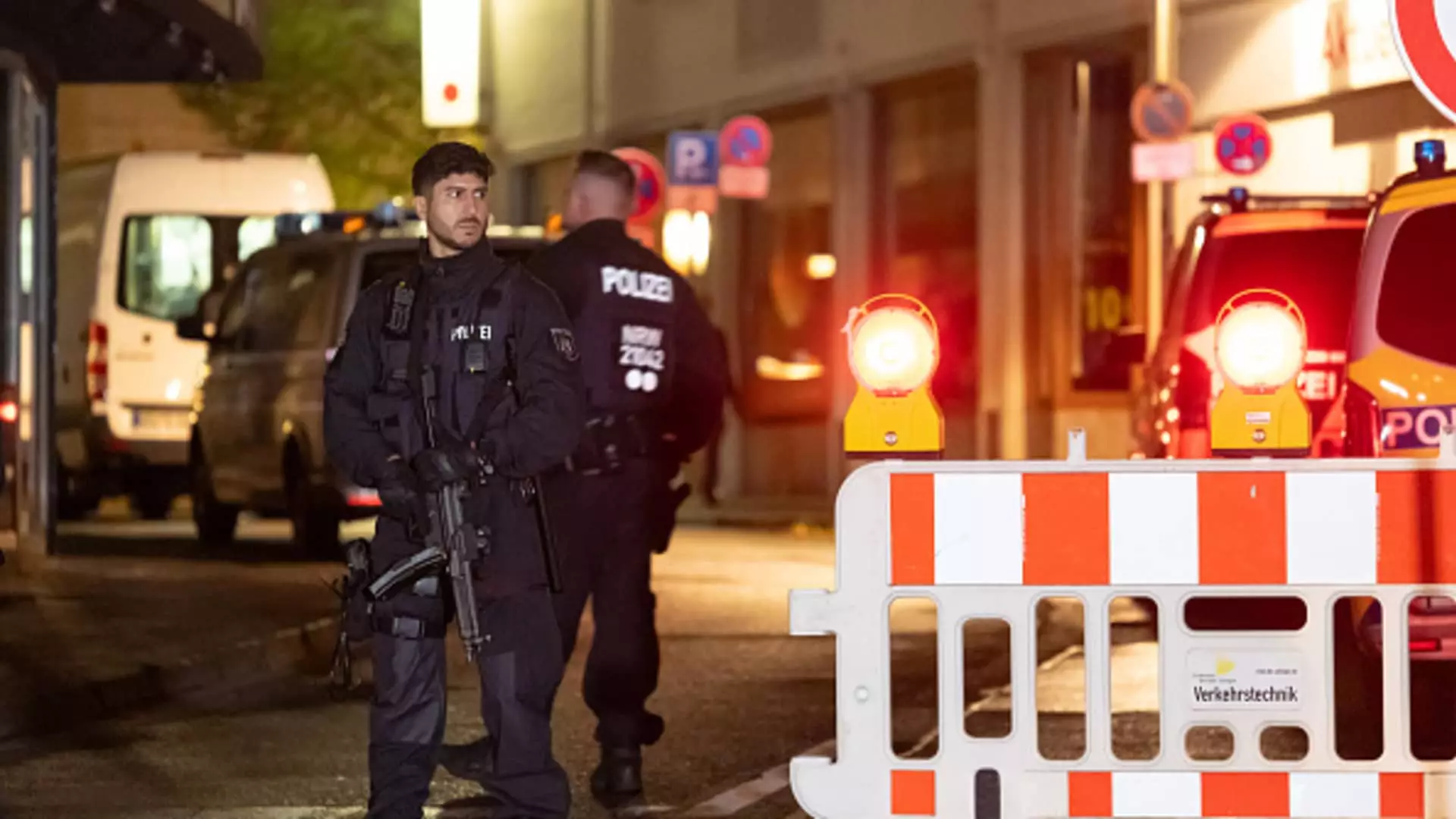Recently, the Islamic State group claimed responsibility for a knife attack in the German city of Solingen that resulted in the tragic deaths of three individuals and the injury of eight others. The group described the attacker as a “soldier of the Islamic State” and stated that the attack was carried out in revenge for Muslims in Palestine and worldwide. However, it is essential to note that the claim made by the militant group lacks concrete evidence to substantiate its assertion. This raises questions about the actual connection between the attacker and the Islamic State and the credibility of the group’s statement.
Following the attack, German authorities have been swift in their response, with police detaining a teenager who may be connected to the incident. However, the actual perpetrator remains at large, prompting a full-scale manhunt to bring the individual to justice. The Premier of North Rhine-Westphalia, Hendrik Wuest, condemned the attack as an act of terror and emphasized the importance of apprehending the assailant. Interior Minister Nancy Faeser reassured the public that authorities are diligently working to capture the perpetrator and ensure the safety of the community.
The knife attack took place in the Fronhof market square in Solingen during a festive event, causing shock and grief among residents and attendees. The square was cordoned off by police as a precautionary measure, and memorial tributes such as candles and flowers were left by mourners outside the barriers. The abrupt cancellation of the weekend festival underscored the severity of the incident and its profound impact on the local community.
In response to the attack, German authorities have expressed the need for stricter regulations concerning the carrying of knives in public spaces. This incident, along with previous cases of fatal stabbings in the country, has highlighted the importance of enhancing security measures to prevent such tragedies from reoccurring. The visit by North Rhine-Westphalia’s interior minister, Herbert Reul, to the site of the attack underscores the government’s commitment to addressing the threat posed by such violent incidents.
The knife attack in Solingen comes at a critical time, with three state elections scheduled to take place in Thuringia, Saxony, and Brandenburg. The rise of anti-immigrant sentiment and the potential influence of far-right parties like the Alternative for Germany (AfD) have added a political dimension to the incident. While the motive and identity of the assailant remain unknown, the attack has already been seized upon by political figures to advance their agendas, raising questions about the divisive discourse surrounding immigration and multiculturalism in Germany.
The recent knife attack in Solingen has shaken the community and sparked debates on security, immigration policies, and political narratives. It is imperative for authorities to apprehend the perpetrator, ensure the safety of the public, and address the underlying issues that contribute to such acts of violence. As Germany grapples with the aftermath of this tragic event, unity, resilience, and a commitment to upholding peace and stability must prevail.


Leave a Reply